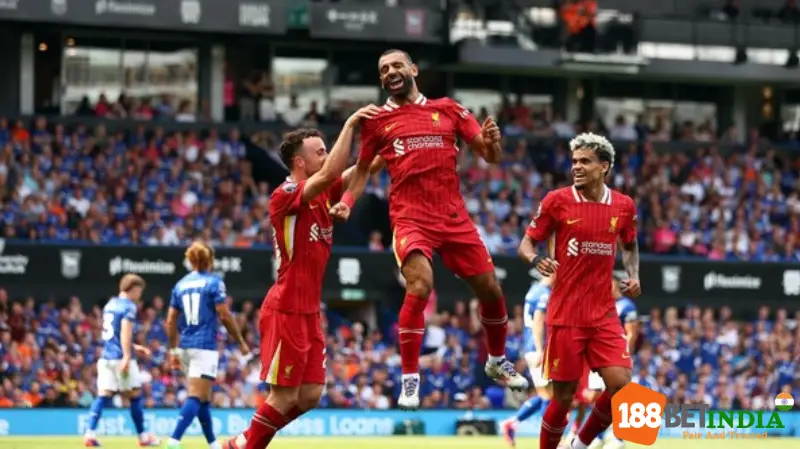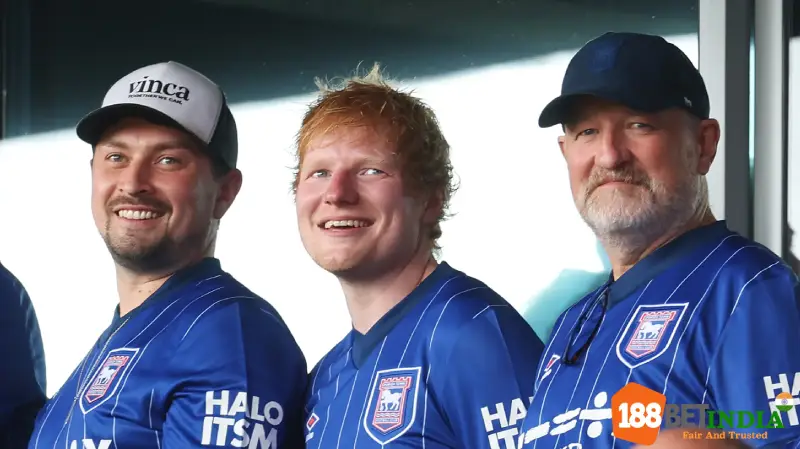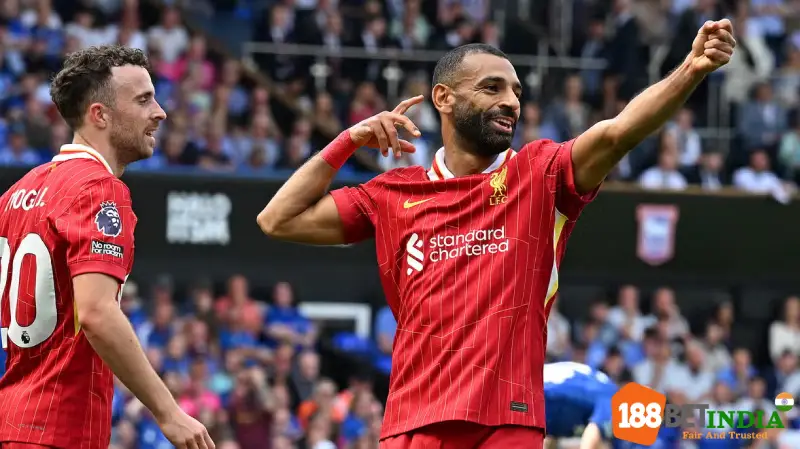In recent years, the worlds of entertainment and professional football have increasingly intersected, with numerous celebrities investing in football clubs. This trend harkens back to earlier days when Elton John not only became a major shareholder of Watford but also served as its chairman for over two decades. More recently, “Deadpool” star Ryan Reynolds and his friend Rob McElhenney purchased the historic Wrexham AFC, a Welsh club that has seen a resurgence and promotion to League One under their stewardship.

In this week’s Premier League matchup, Liverpool FC secured a 2-0 victory over Ipswich Town FC, with goals from Diogo Jota and Mohamed Salah sealing the win.
Liverpool’s Dominance on the Pitch
The match was a showcase of Liverpool’s tactical prowess and offensive strength. From the first whistle, Liverpool dominated possession, displaying the kind of fluid football that has become synonymous with Jürgen Klopp’s management. Ipswich Town, while resilient in defense, struggled to contain Liverpool’s relentless attacking plays.
Diogo Jota opened the scoring for Liverpool in the first half with a well-placed header, demonstrating his knack for being in the right place at the right time. Ipswich’s defense, though valiant, was unable to keep up with the pace and precision of Liverpool’s frontline.
Mohamed Salah, as expected, was a constant threat on the right wing. His goal in the second half, a clinical finish after a swift counter-attack, put the game beyond Ipswich’s reach. Salah’s performance once again highlighted why he is considered one of the Premier League’s most dangerous forwards.
Celebrity Influence in Football
The match was not just about the football, however. It also highlighted the growing influence of celebrities in the sport. Ipswich Town’s chairman, Mark Ashton, recently made headlines by announcing that pop superstar Ed Sheeran, who has been a longstanding supporter of the club, had become a shareholder.
“Over the past three years, Ed Sheeran and his team have shown an incredible commitment to our club. Making him a shareholder felt like a natural progression,” Ashton said. “Having a global superstar dedicate so much time and bring such incredible attention to our club while asking for so little in return truly underscores the strength of our relationship.”
This partnership is a perfect example of how celebrities are not just passive investors; they actively contribute to the growth and global reach of the clubs they are involved with. Ed Sheeran’s involvement has undoubtedly brought Ipswich Town into the spotlight, attracting new fans and generating significant media coverage.

The Future of Celebrity-Owned Football Clubs
The trend of celebrities owning or investing in football clubs is likely to continue, as it offers a unique opportunity for them to engage with fans on a new level and diversify their portfolios. For the clubs, the benefits are clear: increased visibility, potential financial investment, and the allure of a high-profile ambassador.
As for Ipswich Town, despite the loss to Liverpool, the future looks bright. With Ed Sheeran’s support and the club’s ambitions, they are well-positioned to continue their rise in English football. The match against Liverpool was a reminder that while celebrity influence is valuable, success on the pitch remains the ultimate goal.
Frequently asked questions
Diogo Jota and Mohamed Salah scored for Liverpool.
Ed Sheeran becomes a shareholder of Ipswich Town Football Club, bringing global attention and support to the club.
Celebrities can bring greater visibility, financial investment and global attention to the football clubs they are involved with.
With Ed Sheeran’s involvement and the club’s ambition, Ipswich Town are well-positioned for growth and success in English football.

Conclusion
Liverpool’s 2-0 victory over Ipswich Town was a reminder of the quality that top Premier League teams possess. However, the real story extends beyond the pitch, highlighting the evolving relationship between football and celebrity culture. As more stars like Ed Sheeran get involved in the sport, the dynamics of football ownership are changing, bringing new opportunities and challenges for clubs across the leagues.
